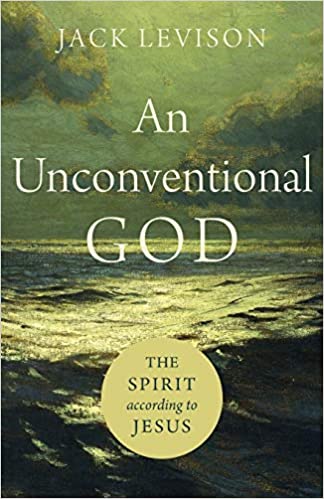BEN: You are right that Luke’s story of the 70 missionaries owes something to the story of the 70 elders in Numbers. It would appear to me that in both cases we are talking about the spirit of Yahweh which was on Moses, being distributed to the 70 elders as well to help Moses out. Likewise, the 70 Jesus sends out are empowered by the spirit of God the Father, because they do not yet have the Holy Spirit in their life, unlike Jesus. So… it does not seem to follow that the ‘spirit that was on Jesus was shared with the disciples’ (p. 89). I mention this because Luke is very careful in the way he refers to the Holy Spirit, and when exactly the disciples receive it. Further, he is clear that Jesus is the first person who had the Spirit in or remaining on him. And this brings up a further issue— the Holy Spirit is a person, not merely a power or a force (‘may the force be with you’). So, while the spirit of Yahweh can be talked about in impersonal ways, understandably since it refers to the living presence and power of God, this is not appropriate with the Holy Spirit. You can no more have a little bit of the Holy Spirit in your life any more than a woman can be a little bit pregnant. I wonder what you think about this. Comments?
JACK: You distinguish between the impersonal “spirit of God the Father” and “the Holy Spirit.” I’m not sure I adhere to this distinction. Let me explain why. First, when Jesus promises the Spirit in Luke 24:49, after his walk along the Emmaus Road, he calls it “the promise of the Father.” What is given in Acts, in fulfilment of this promise, is the Holy Spirit (Acts 1:8). The Spirit of the Father and the Holy Spirit are one and the same. In fact, connecting promise and fulfilment is a mention of power, which links them in Luke 24:49 and Acts 1:8.
Second, people before Jesus do seem to receive the Spirit. I’ve mentioned Elizabeth and Zechariah. Add to that Simeon, who, in quick succession, has three references to the Spirit coalesce round him in Luke 2:25-26: the Spirit was upon him, revealed something to him, and guided him. I would not want to draw a distinction between the Spirit in these faithful Jews and the faithful Jew, Jesus.
Third, the Old Testament is full of experiences of the Spirit (see A Boundless God). I would not want to create a canonical rift between the testaments by saying that the Spirit is a power in the first testament but a person in the second, especially since I argued in The Holy Spirit before Christianity that the Spirit was already understood as a personal agent in Haggai 2:4-5 and Isaiah 63:7-14.
Finally, I don’t think it is necessary to say that Pentecost was the first outpouring of the Holy Spirit. It was a significant and salient outpouring, the purpose of which was to fire the witness of the disciples—this took place at Pentecost—but that need not mean the promise of the Father took place for the first time at Pentecost.
BEN: What you say on pp. 90-91 is important— the Spirit on and in Jesus enlightens or leads Jesus back to the Father time and again, makes clear he has a special relationship with the heavenly Father. You are right that the main thing is this relationship with the Father which only the Son can give the disciples access to, and in addition there is the theme of reversal, that this revelation is received not by the high and mighty, the wise and well-heeled, but by the ordinary, even the babes in the woods. I’ve often pondered why the latter is true— perhaps it shows that such a relationship doesn’t come from mere advantage, or erudition, or native ability— it comes as a gift from God, and one thing children are good at is receiving gifts they have not merited or earned, unlike some adults. Does this make sense to you?
JACK: I think you have expressed the matter perfectly. What you’ve said fits as well Paul’s claim in 1 Corinthians 2 that inspiration is not the property of the educated or elite. This is a theme that runs through scripture, including through the heart of Pentecost, when it is said that slaves, both male and female, will prophesy when the Spirit is poured on them in fulfilment of the prophet Joel’s promise. So, yes, Ben, this makes perfect sense. I think I am particularly drawn to this insight because I was the first in my family to attend a private college. My parents had stopped their education at high school: my mother in a rural western Pennsylvania school and my father in a big high school in Queens, New York, which he left to become a front gunner in a B-24 during World War II. When I arrived at Wheaton College, I was wet behind the ears, and it never dawned upon me to fawn over someone because he had money or she had parents with college educations. You have expressed this perfectly: “a relationship doesn’t come from mere advantage, or erudition, or native ability—it comes as a gift from God, and one thing children are good at is receiving gifts they have not merited or earned, unlike some adults.”













